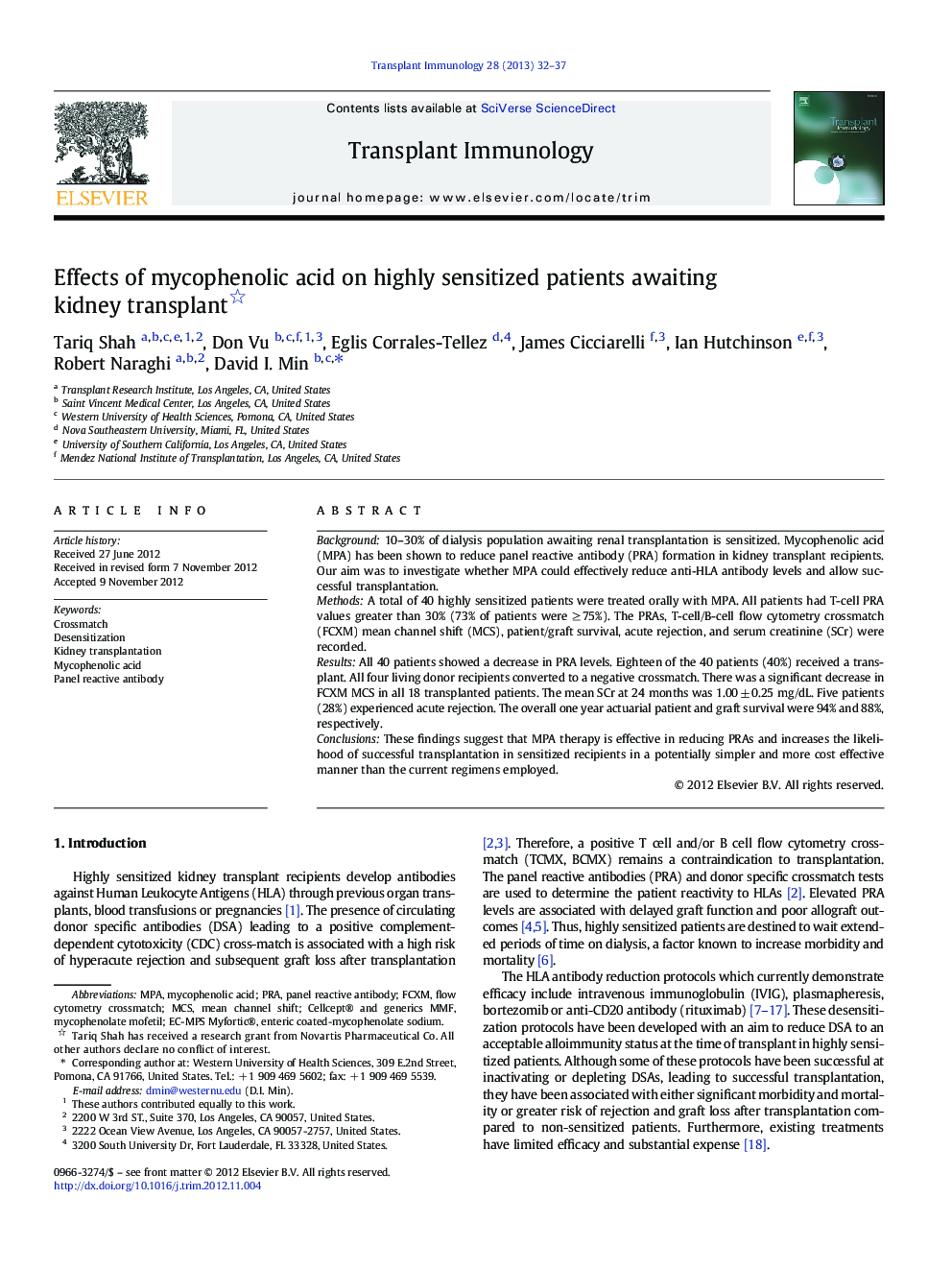| Article ID | Journal | Published Year | Pages | File Type |
|---|---|---|---|---|
| 3392108 | Transplant Immunology | 2013 | 6 Pages |
Background10–30% of dialysis population awaiting renal transplantation is sensitized. Mycophenolic acid (MPA) has been shown to reduce panel reactive antibody (PRA) formation in kidney transplant recipients. Our aim was to investigate whether MPA could effectively reduce anti-HLA antibody levels and allow successful transplantation.MethodsA total of 40 highly sensitized patients were treated orally with MPA. All patients had T-cell PRA values greater than 30% (73% of patients were ≥ 75%). The PRAs, T-cell/B-cell flow cytometry crossmatch (FCXM) mean channel shift (MCS), patient/graft survival, acute rejection, and serum creatinine (SCr) were recorded.ResultsAll 40 patients showed a decrease in PRA levels. Eighteen of the 40 patients (40%) received a transplant. All four living donor recipients converted to a negative crossmatch. There was a significant decrease in FCXM MCS in all 18 transplanted patients. The mean SCr at 24 months was 1.00 ± 0.25 mg/dL. Five patients (28%) experienced acute rejection. The overall one year actuarial patient and graft survival were 94% and 88%, respectively.ConclusionsThese findings suggest that MPA therapy is effective in reducing PRAs and increases the likelihood of successful transplantation in sensitized recipients in a potentially simpler and more cost effective manner than the current regimens employed.
► We describe a protocol using the MPA to decrease the PRA % and the TCMX, BCMX. ► All 40 patients showed a decrease in PRA %, 18 of them received a transplant. ► A significant reduction in TCMX, BCMX was seen in all 18 patients. ► All four LD recipient patients achieved conversion to a negative crossmatch. ► The overall one year actuarial patient and graft survival were 94% and 88%.
